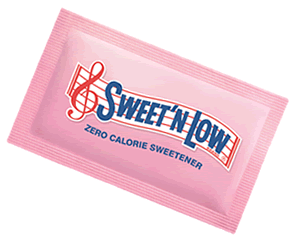

More On No- and Low-Calorie Sweeteners

When it comes to sugar alternatives, there is a rainbow of choices. Among the many benefits they offer, low- and no-calorie sweeteners allow your clients to enjoy sweet foods and beverages while cutting calories, managing carbohydrate intake and reducing added sugars. As part of an overall healthful lifestyle, people around the globe rely on sugar alternatives as tools to help manage weight and prevent or manage diabetes.
Find out what the experts and leading scientific institutions have to say about low and no-calorie sweeteners below.
Academy of Nutrition and Dietetics
American Diabetes Association & National Cancer Institute
American Heart Association & American Diabetes Association Joint Statement
What The Experts Say
National Cancer Institute
“There is no clear evidence that the artificial sweeteners available commercially in the United States are associated with cancer risk in humans.”
Source: National Cancer Institute, “Artificial Sweetener Fact Sheet”

Academy of Nutrition and Dietetics
“The FDA has approved a variety of sugar substitutes according to its rigorous testing
and evaluation of sweeteners. The majority of studies did not document harmful effects related to
the intake of artificial sweeteners, even when people consumed large amounts”.
Source: Academy of Nutrition and Dietetics Evidence Analysis Library, “The Truth about Artificial Sweeteners or Sugar Substitutes”

American Diabetes Association & National Cancer Institute
“Individuals with diabetes and diabetes health care professionals can benefit from learning more about nonnutritive sweeteners to make informed decisions about their use based on available evidence, rather than on myths and misinformation shared on the Internet and in the print and electronic media. Research on five approved nonnutritive sweeteners supports safety when used under FDA recommendations. Potential benefits include calorie and carbohydrate reduction for weight management, glycemic control, and reduction in the risk of tooth decay”
Source: ADA Diabetes Spectrum, “Nonnutritive Sweeteners: Where Are We Today?”

American Heart Association & American Diabetes Association Joint Statement
“The evidence reviewed suggests that when used judiciously, NNS (non-nutritive sweeteners) could facilitate reductions in added sugars intake, thereby resulting in decreased total energy and weight loss/weight control, and promoting beneficial effects on related metabolic parameters. However, these potential benefits will not be fully realized if there is a compensatory increase in energy intake from other sources.”
Source: American Heart Association and American Diabetes Association Scientific Statement, “Nonnutritive Sweeteners: Current Use and Health Perspectives”

US-Approved Sweeteners
- Aspartame - roughly 200 times sweeter than sugar (found in Equal®, NutraSweet®, NatraTaste BlueŽ)
- Acesulfame potassium (Ace-K) - roughly 200 times sweeter than sugar (found in Sunett ®, Sweet One®)
- Saccharin - - roughly 300 times sweeter than sugar (found in Sweet'N Low®)
- Stevia/Rebaudioside A - roughly 200-300 times sweeter than sugar (found in Stevia In the Raw®, Purevia®, Truvia®)
- Sucralose - - roughly 600 times sweeter than sugar (found in Splenda®, NatraTaste GoldŽ)
- Neotame - roughly 7000 times sweeter than sugar
- Monk Fruit extract (Luo han guo fruit extract) - roughly 200-300 times sweeter than sugar (found in Monk Fruit In The Raw®)
Of the currently available low-calorie sweeteners, only aspartame is considered a “nutritive” sweetener, as it is metabolized by the body and provides calories. However, since so little aspartame is needed to obtain the same sweetness as sugar, the calories are negligible. Conversely, sweeteners like saccharin are not broken down by the body at all, provide no calories, and are frequently termed "zero-calorie" or "no-calorie" sweeteners.
For more information on the various low-calorie sweeteners available today, please visit the Calorie Control Council

More on Low-Calorie Sweeteners
Mayo Clinic: Artificial sweeteners and other sugar substitutes
Facts About Low-Calorie Sweetener Consumption









